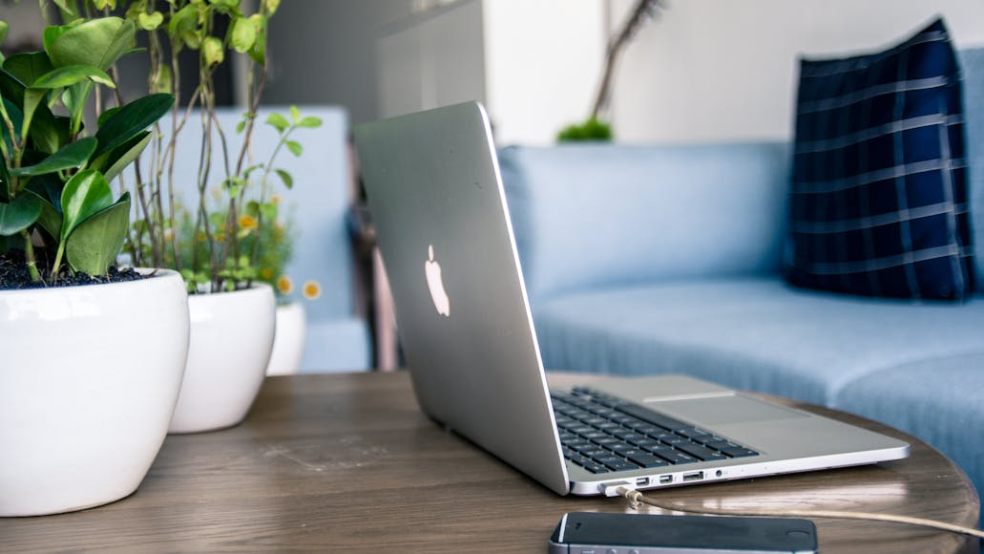
The Environmental Benefits of Selling Your Old Mac
As technology continues to evolve at a rapid pace, many of us find ourselves upgrading to the latest devices. Apple’s MacBook lineup, for example, is known for its exceptional performance, design, and reliability. While purchasing new gadgets is exciting, it also comes with significant environmental costs, including electronic waste (e-waste) and resource depletion. One way to mitigate these effects is by selling your old MacBook instead of simply throwing it away. By selling your Mac, not only do you benefit financially, but you also contribute to sustainability and the circular economy.
Understanding the Impact of E-Waste
E-waste is one of the fastest-growing waste streams globally. In the UK alone, millions of tons of e-waste are generated every year, much of which ends up in landfills or is improperly recycled. E-waste contains harmful substances, such as lead, mercury, and cadmium, which can contaminate the environment and pose health risks to humans and wildlife.
When you dispose of your old electronics irresponsibly, you contribute to this mounting issue. By choosing to sell your MacBook, you give the device a second life and keep it out of landfills, which is crucial in minimizing its environmental impact. Refurbishing old electronics for resale also reduces the need for new manufacturing, which requires the extraction of precious raw materials and significant energy consumption.
Reducing Resource Depletion
The production of new electronics requires the mining and extraction of precious metals and minerals, such as gold, copper, and rare earth elements. These materials are finite, and their extraction can result in significant environmental harm, including habitat destruction, water pollution, and excessive energy consumption.
When you sell your MacBook instead of discarding it, you are helping to preserve these valuable resources. The process of refurbishing devices involves taking apart old products, recycling their components, and reusing materials wherever possible. This approach conserves natural resources and minimizes the environmental footprint associated with mining and manufacturing new devices.
Additionally, recycling the components of a MacBook ensures that the valuable materials used in its production are recovered and reused, preventing unnecessary waste. By taking part in this process, you are actively contributing to the reduction of resource depletion and promoting sustainability within the tech industry.
Supporting the Circular Economy
The circular economy is an economic system that aims to eliminate waste and keep resources in use for as long as possible. Instead of the traditional "take-make-dispose" model, a circular economy emphasizes the reuse, repair, refurbishment, and recycling of products.
When you choose to sell your MacBook, you are participating in the circular economy. Rather than allowing your device to become waste, you are giving it the opportunity to be refurbished, repaired, and reused by someone else. This helps to extend the lifespan of the device, reducing the need for new products and fostering a more sustainable system.
Refurbishment companies, such as those that specialize in refurbished Apple products, play a key role in this process. They are able to inspect, clean, repair, and restore MacBooks to near-new condition, ensuring that they continue to serve their purpose for many more years. This not only benefits consumers who purchase refurbished devices but also promotes a more sustainable approach to technology consumption.
Saving Energy and Reducing Carbon Emissions
The production of new electronics is energy-intensive and generates a substantial amount of carbon emissions. According to estimates, the production of a single laptop can result in the release of hundreds of kilograms of CO2 into the atmosphere. This includes the energy used to manufacture the device, as well as the emissions generated during the mining and transportation of materials.
By choosing to sell your MacBook instead of buying a new one, you are indirectly reducing the demand for new manufacturing and, consequently, lowering the overall carbon footprint of the tech industry. Refurbishing an old device requires far less energy compared to manufacturing a new one from scratch, making it a more energy-efficient and eco-friendly choice.
The Social Benefits of Refurbishing and Recycling
Selling your old MacBook doesn’t just benefit the environment—it can also have positive social impacts. When you choose to sell or donate your old electronics, you are helping to provide access to affordable technology for individuals and organizations who may not have the means to purchase new devices.
Many refurbished electronics are sold at significantly lower prices than their brand-new counterparts, making them more accessible to people on a budget. Non-profit organizations, schools, and community programs can also benefit from receiving donated or refurbished tech, enabling them to provide educational resources or job training to underserved populations.
Additionally, the refurbishment process creates jobs in local communities, contributing to the growth of green industries and the circular economy. By choosing to sell or donate your MacBook, you are supporting this network of repair professionals, refurbishers, and environmental organizations that work to make technology more sustainable and accessible.
Concluding Thoughts
In an era where environmental consciousness is becoming increasingly important, making sustainable choices has never been more vital. Selling your old MacBook instead of discarding it is a simple yet effective way to contribute to environmental preservation and resource conservation. Not only will you help reduce e-waste, but you will also play a role in promoting the circular economy, saving energy, and reducing carbon emissions. By choosing to sell your MacBook, you are making a positive impact on the planet and supporting a more sustainable tech industry for future generations.













